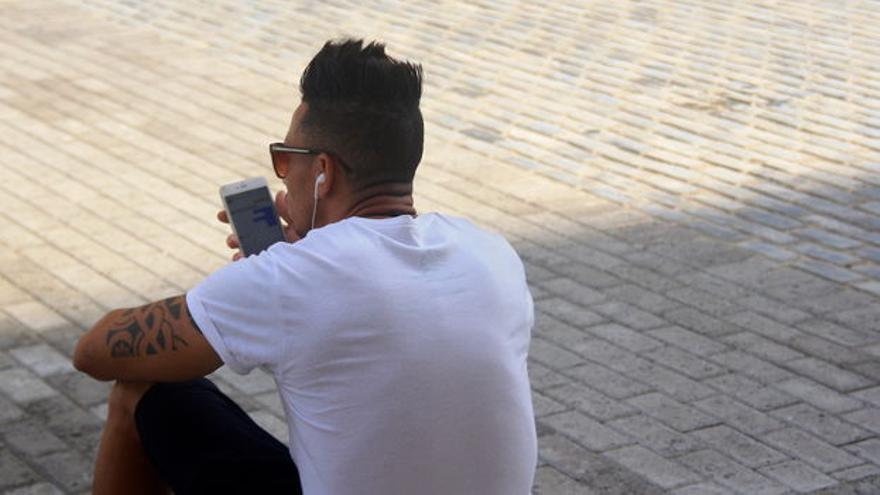
![]() 14ymedio, Havana, 17 August 2021 — Giving voice to false news in Cuba, disseminating it, publishing offensive messages or defamations that harm “the prestige of the country” will be a crime when Decree-Law 35 goes into effect on Wednesday; the law will penalize “ethical and social or incidents of aggression” on social media.
14ymedio, Havana, 17 August 2021 — Giving voice to false news in Cuba, disseminating it, publishing offensive messages or defamations that harm “the prestige of the country” will be a crime when Decree-Law 35 goes into effect on Wednesday; the law will penalize “ethical and social or incidents of aggression” on social media.
With the publication in the Official Gazette of the new legislation on Telecommunications, Information and Communication Technologies and the Use of the Radioelectric Spectrum, supplemented by three resolutions (105, 107 and 108) on cybersecurity, the use of communications satellite and telecommunications networks, the Government takes another step in controlling the internet “to defend the achievements made by [the] Socialist State.” These texts were approved on 13 April but the details of the content were not known until now.
The regulation includes a long list of cybersecurity incidents that range from computer attacks or physical damage to telecommunications systems to more serious events, such as the access and dissemination of child pornographic content, which are nonetheless classified as having a medium or high level of danger. In contrast, the category of “social subversion,” described as actions that seek to disturb public order, is considered very high risk.
There are up to 17 categories, with their respective subcategories, of the type of content that can incur a crime and to which a risk alert is attached. The response will depend on the category.
In general, incidents related to “strategic defense, political, economic, scientific-technical and social objectives” that can cause serious damage are considered maximum security, while high security incidents are those in the same areas that can provoke disturbances of public order.
The regulation encourages the general population to report this type of incident and provides a form that must, where appropriate, be filled in with the data and characteristics of the allegedly committed offense.
The new regulations empower the Cybersecurity Directorate, belonging to the Ministry of Communications, in coordination with the Ministries of the Revolutionary Armed Forces and the Interior “to implement the complementary actions that are required to comply with the provisions of the law.”
In this regard, Pablo Domínguez Vázquez, director of Cybersecurity of the Ministry of Communications, explained to the official press that Cuba does not have a service contract with social networks, but it can register and notify the violations that are carried out on the platforms. “When these people are identified and they are in the country, violations are imposed. With this new regulation, the Cuban State has a record of all these incidents,” he said.
One of the provisions of the regime with the new decree is that, in addition to state institutions, any citizen may report an alleged cybersecurity attack. That is, any person who believes that a user on the Island has published content that violates the provisions of this law, may notify the Government. The official Cubadebate site specified that complaints should be made at the Computer Network Security Office.
The legislation also includes details on the connection devices that can be used in the national territory to access the internet. In the case of equipment that captures the satellite signal, the regulation maintains the requirement of a permit from the Ministry of Communications to import them into the country, a step that limits the possibility of use by natural persons.
Only diplomatic headquarters and consular missions, as well as representatives of international organizations registered in the country, are outside these restrictions, something that considerably limits any initiative to offer Internet access to the Cuban population through satellite devices and independently, to the state telecommunications monopoly Etecsa.
Recently, after the popular protests of last July and the censorship against the internet that the Government deployed in the following days, the initiatives to provide access to the world wide web to Cubans for free have even reached the United States Senate, where a vote paved the way for the project to facilitate connectivity on the island, although technical details of how it will be implemented have not been given.
In July 2019, the Government already approved legislation “on the computerization of society in Cuba” — Decree-Law 370, known as the “scourge law” — through which it intended to “raise technological sovereignty for the benefit of society, the economy, national security and defense “and” counteract cyber aggressions.”
Among its most controversial articles was the one that penalizes “disseminating, through public data transmission networks, information contrary to social interest, morality, good customs and the integrity of people,” which was compared, to the virtual world, with the crime of pre-criminal dangerousness*.
This legal figure applies to opponents and critics of the Government and has been denounced by organizations such as Amnesty International and the Inter-American Commission on Human Rights for condemning citizens for an alleged crime that they have not yet committed.
*Translator’s note: Cuba’s Penal Code includes the crime of pre-criminal dangerousness which can be charged to anyone the government believes might commit a crime in the future.
____________
COLLABORATE WITH OUR WORK: The 14ymedio team is committed to practicing serious journalism that reflects Cuba’s reality in all its depth. Thank you for joining us on this long journey. We invite you to continue supporting us by becoming a member of 14ymedio now. Together we can continue transforming journalism in Cuba.
